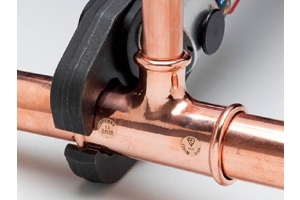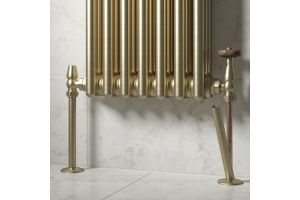Light nights are creeping in and summer is on the horizon. Despite the unpredictability of British weather, temperatures do generally tend to rise - allowing for less dependence on household heating. Open up your curtains and bask in the sun, whilst saving money on your heating bills at the same time. Win-win!
This leads to thinking, what benefits could come from turning your boiler off completely for the season? Or is that unnecessary? Read on for information on how to implement efficient heating habits into your home this summer.
Should You Switch Your Boiler off Over the Summer?
The long and short of it is, it depends. The first thing to do is to clear up what kind of boiler you currently have installed. If you own an older boiler with a pilot light, it might be worthwhile to switch it off when heating isn’t needed. This is because it will continue to burn gas whilst the pilot light is active. Turning it off entirely will prevent excess energy (and money!) from going to waste. Meanwhile, more modern boilers typically use less energy when they are on ‘standby’, so unless the cylinder isn’t well insulated, there’s nothing too significant to gain from turning it off. If you do opt for a boiler-free summer, make sure you continue to turn it on every so often for short periods to prevent the valves from seizing up. The last thing you want is to leave yourself with a faulty boiler just as the autumn cold kicks in.
Alternative Heating Adjustments to Help you Save
Turning off your boiler can be a great way to conserve resources, but this may not work particularly well around your lifestyle since boilers are often responsible for heating other appliances in the house. Whilst it’s entirely possible to rely on alternatives like electric showers or cold water for washing up to save some cash, implementing heating controls and valves alongside your heating system is a great compromise between energy-saving and convenience.
Thermostats
The idea that it’s cheaper to leave the heating on low all day is a myth, using the heating only when you need it is the best way to save energy and money in the long run. For this reason, it might be worth investing in a thermostat to control your energy use.
Thermostats provide a fuss-free way to manage your heating. Simply program your thermostat to work to your schedule or general preferences. This way your boiler can remain switched on, only kicking the heating into action when the climate of the room drops below your desired temperature. This is especially ideal for the summer months, where some days are hotter than others.
For the most advanced and customisable options look towards smart technology controls. Working on the same premise, they go a step further and can learn how your house heats up, what temperatures you favour and even detect drafts. Features vary, but generally, they are compatible with your phone, tablet or other devices. This allows you to adjust and monitor your heating from afar or on the go!
Radiator Valves
Another way to moderate room temperature is to adapt your radiators.
Thermostatic radiator valves are a nifty piece of technology that can easily be fitted to your radiator valves for financial and energy-saving benefits. They are also self-regulating meaning that they can sense the air temperature in the room and expand or contract depending on the climate, adjusting the flow of hot water into your radiator accordingly.
Ultimately the choice is yours - after all, these suggestions are reliant on individual lifestyles and preferences. However, do keep in mind that you should keep turning on your boiler now and then to prevent future faults.
It’s also advisable to have your boiler servicing done within the summer period. Take advantage of the shorter waiting times so you can sit back smug, knowing that you’ve managed to beat the inevitable autumn rush.
 4.9+ Rating
4.9+ Rating 







